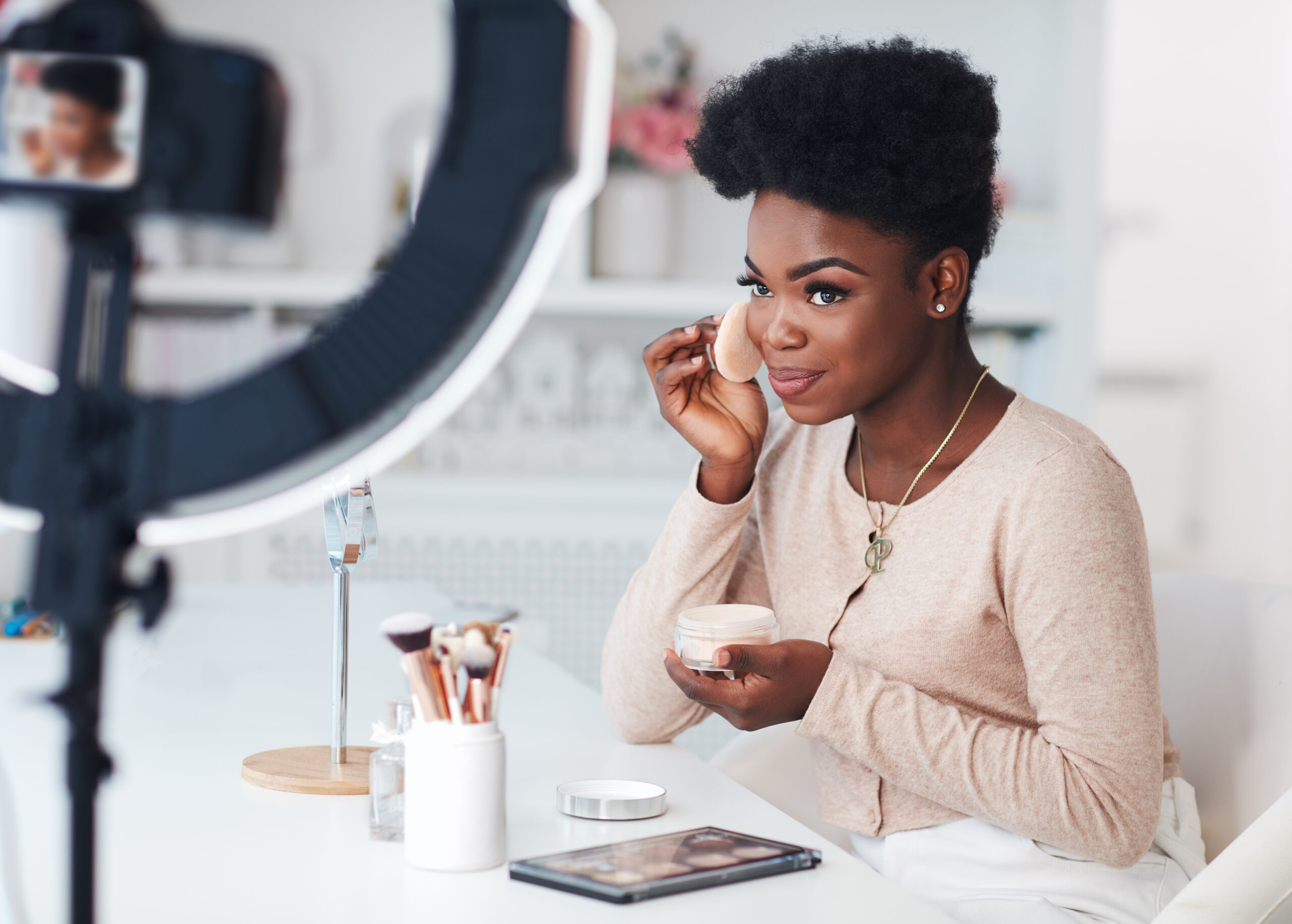Social media is no stranger to controversial trends. “Ghetto makeup” is the latest one making waves and it is raising eyebrows and important questions. Search the term on TikTok, and you’ll find an overwhelming number of videos featuring Black women, particularly those with darker skin tones, showcasing their makeup routines. What might seem like a harmless trend at first glance quickly reveals a deeper, more insidious problem, the continued policing and stereotyping of Black beauty.
What is “Ghetto Makeup”?
The term “ghetto makeup” seems to have gained traction thanks to TikTok’s algorithm, which amplifies content based on user behavior. However, its emergence is rooted in something far more problematic. The word “ghetto” itself has long been weaponized against marginalized groups, particularly Black communities, to reinforce stereotypes of poverty, unrefinement, and inferiority. Its use in connection with makeup, an inherently creative and empowering form of self-expression, feels like a slap in the face.
People often ridicule or label Black creators as “ghetto” when they post videos of themselves trying unconventional beauty hacks or simply sharing their daily routines. Meanwhile, the same behaviors are celebrated as quirky or innovative when performed by non-Black creators. This double standard perpetuates the idea that Black women’s creativity is only valid when someone else rebrands and monetizes it.
A History of Mislabeling Black Beauty
This isn’t the first time people have misunderstood or misappropriated Black beauty. Black culture has always been at the forefront of trends. Yet, instead of giving Black women credit, society often reduces them to caricatures or labels them with demeaning terms.
Using “ghetto” to describe makeup not only dismisses the artistry and ingenuity of Black women but also underscores society’s inability to separate systemic bias from cultural expression. Why is a makeup hack involving broken foundation bottles considered “ghetto” when it’s a resourceful act of making do?
Why The “Ghetto Makeup” Trend Is Problematic
At its core, the “ghetto makeup” trend shows that people view Black women’s creativity through a lens of judgment. This isn’t just about a hashtag or a few viral videos, it’s about the persistent dehumanization of Black women in spaces where they should feel celebrated.
Systemic oppression is at the core of the term “ghetto”. Historically, it has been used to describe marginalized communities forced into segregated areas due to racist housing policies and economic disparities. To repurpose such a loaded term for a makeup trend is not only ignorant but also dismissive of the struggles tied to it.
Moving Forward: Respect Black Culture
Trends like these remind people of the work still needed to dismantle harmful stereotypes. For Black creators, the message is clear: our culture is not a punchline or a trend. The world loves to imitate us but hesitates to respect or understand the context of what we create.
Black women are the blueprint for countless beauty trends. Yet they often don’t receive the recognition—or the respect—they deserve. The “ghetto makeup” trend shows that one can commodify and demean creativity at the same time. Either respect Black culture or leave it alone.
